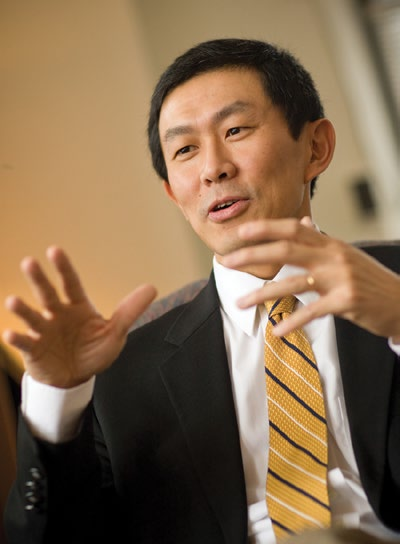As this issue of Resolve goes to press, Lehigh is gearing up for a twoday workshop titled “Computational Engineering & Science/HPC: Enabling New Discoveries.” The event’s participants will explore the pressing needs and opportunities associated with cutting-edge research endeavors that are computational in nature – and those that depend upon high-performance computing (HPC) resources for success.
Advanced computing, along with theoretical exploration and laboratory experimentation, constitutes a “third pillar” of scientific inquiry. In the past 20 years, computing has played a leading role in major scientific and technological breakthroughs that are critical for sustained scientific leadership and economic competitiveness. Computing allows researchers to map the human genome, project climate change and ecological impact, and simulate such complex phenomena as protein folding and nuclear fusion. Computing and computational research are now an integral part of scientific discovery.
Continued advancement in computing is critical for us to meet the grand challenges of our time – in health care, in energy and the environment, in infrastructure renewal, and in global economic development. Our Fall 2009 workshop will bring together researchers who explore high-end computational technology and methodologies, and researchers from all areas of science and engineering who rely increasingly on HPC platforms or their research. This kind of interaction will lead to new perspectives and new opportunities for discovery.
In this issue of Resolve, we highlight the activities of Lehigh researchers who use HPC resources and expertise to solve complex problems. These endeavors have very different expected outcomes, but they share two features: big-time computing needs and tremendous potential impact.
Lehigh researchers use computational modeling to help doctors improve cancer-radiation techniques to limit damage to healthy cells around tumors, or to allow people stricken with immobilizing diseases to control devices through “thought recognition.” Others seek to gauge the effect of earthquakes on interconnected infrastructure systems, or to understand the diffusion of aluminum and oxygen ions in the manufacture of advanced ceramics. Still others intend to improve the effectiveness of search engines on the Web.
These diverse research activities in the College translate quite readily into our classrooms and undergraduate labs, as evidenced in the article about Lehigh Engineering’s annual research competition, the David and Lorraine Freed Undergraduate Research Symposium. The symposium grows in stature each year, the competition is sharper than ever, and the research involved is increasing in sophistication. This past year, the symposium expanded to include engineering students from our archrival Lafayette, ratcheting up the competitive spirit even further. The symposium, made possible by a generous endowment from an alumnus, is enhancing the Lehigh experience for many of our students, and its positive impact on our students is palpable.
I hope you enjoy this issue of Resolve. Please drop me a note to share your thoughts and comments.
S. David Wu, Dean and Iacocca Professor
P.C. Rossin College of Engineering and Applied Science

